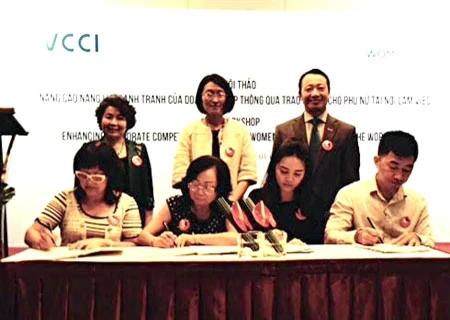Hanoi (VNA) - ASEAN countries could boost productivity of their agribusinesses simply by improving opportunities for women to participate in the sector on an equal footing with men, a senior official of the UN’s Food and Agriculture Organization (FAO) said.
“Women account for half of the world’s population and about a quarter of its agricultural labour force, yet many rural women remain marginalized and their productive potential in many countries of the Asia-Pacific region is woefully underutilized,” FAO’s news release on November 23 quoted Kundhavi Kadiresan , Assistant Director-General and Regional Representative of the UN agency, as saying during the Voices of Women, a side event at the 27th Association of Southeast Asian Nations (ASEAN) leaders’ summit in Kuala Lumpur, Malaysia.
Kadiresan noted that women are the backbone of rural economies, especially in developing countries, yet they often have unequal access to credit or decision making processes, when compared to men in similar agricultural occupations.
Another issue holding agribusinesses back from achieving their full potential is the ‘feminization of agriculture,’ a situation often occurring when men who traditionally worked in agriculture migrate, and the work they’ve left behind shifts to women who do not possess the same skills, access to credit, technologies or resources.
According to the FAO official, steps must be taken to ensure that women in agriculture have the tools and support they need to become more productive, participate in the decision-making processes and enjoy an equal share of the rewards.
She reported that FAO, in collaboration with member countries and other partners, are empowering women through work in ASEAN countries. In Myanmar, Laos and Cambodia, employment for women has been generated in processing and packing facilities of organic agricultural products. Empowerment and leadership skills have been fostered through participation in cooperatives.
Kadiresan pointed out that ASEAN’s inherent policy leadership and coordinating role make it well placed to create a sustainable environment in which women in rural areas could become more productive in agriculture. Through carefully implemented gender-responsive and pro-poor policy development, a win-win-win situation could emerge for women and their families, through enhancing livelihoods and nutritional well-being, improvements and increases in food production, and ultimately economic gains for ASEAN’s member countries. -VNA























